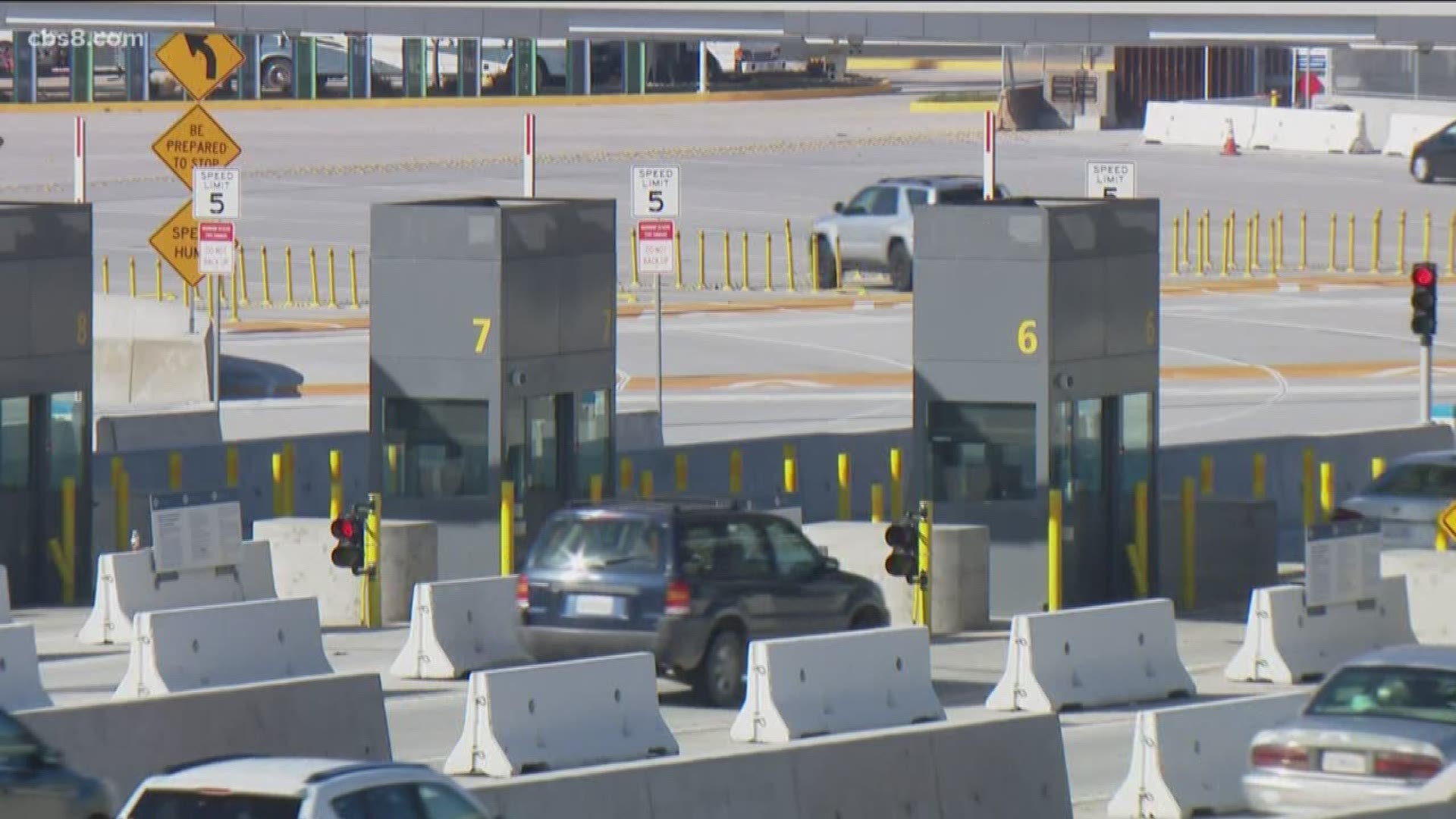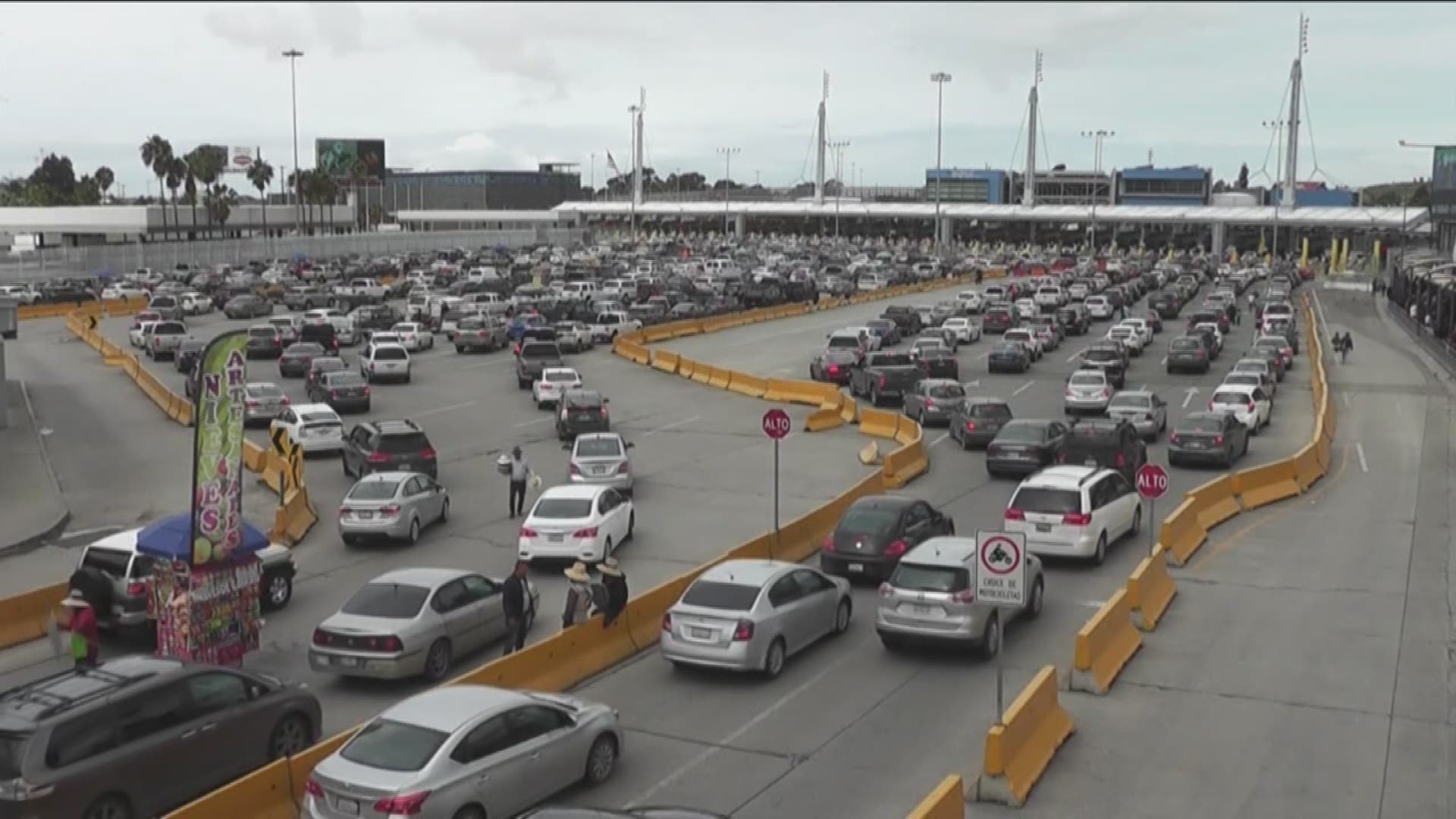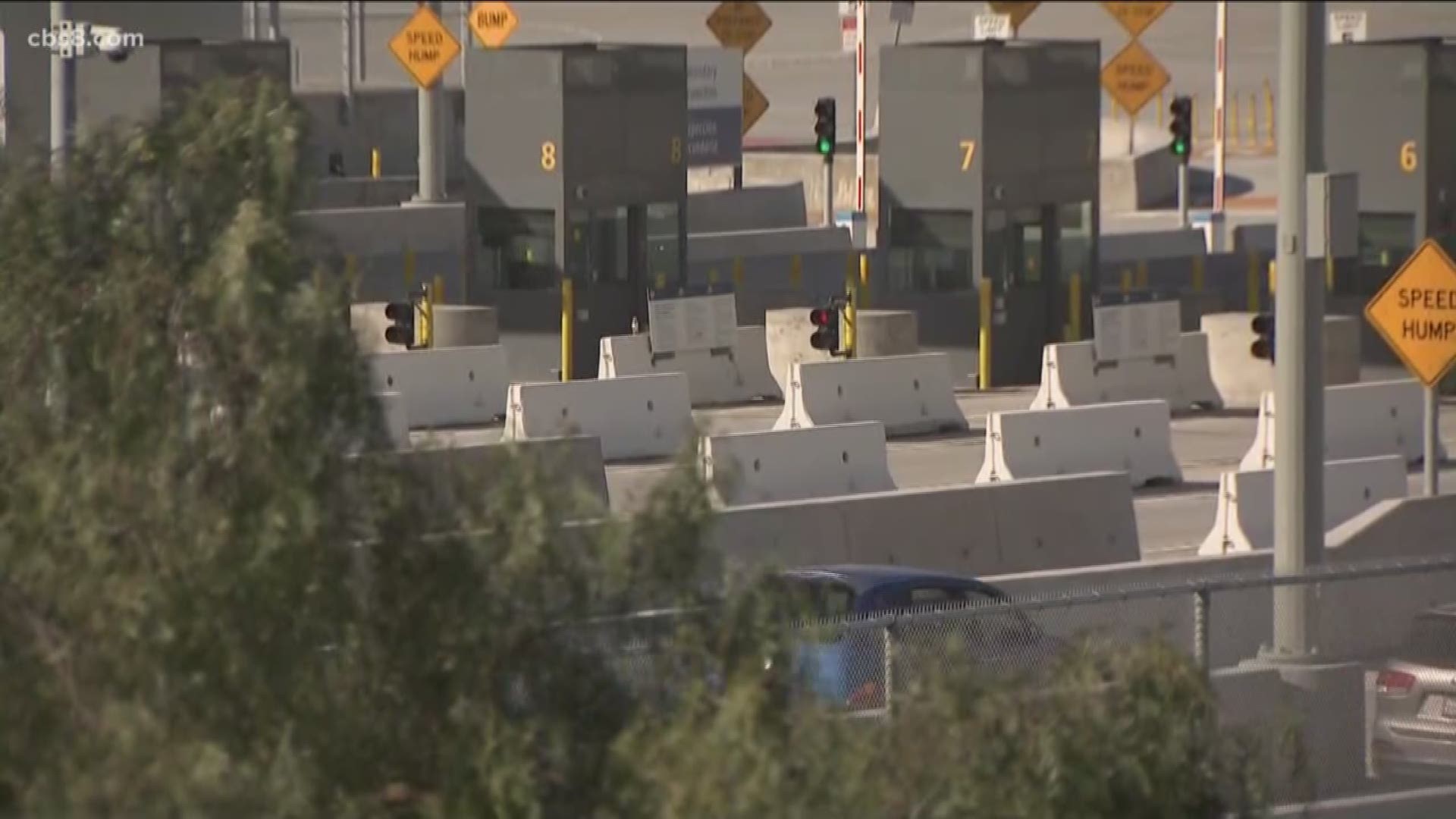SAN DIEGO COUNTY, Calif. — The United States and Mexico have agreed to restrict "non-essential travel" at the U.S.-Mexico border starting Saturday in order to limit the spread of the novel coronavirus, White House officials announced Friday.
The agreement, which went into effect at midnight Friday, does not apply to transportation of commercial goods and other "lawful trade and commerce," President Donald Trump said.
"As we did with Canada, we're also working with Mexico to implement new rules at our ports of entry to suspend non-essential travel," Trump said.
The temporary closure applies mainly to recreational travel across the border. It follows the agreement between the U.S. and Canada to close the northern border to non-essential travel, which was announced Wednesday. The restrictions will be reviewed after 30 days, Secretary of State Mike Pompeo said.
The State Department also issued a travel alert on Thursday urging Americans not to travel abroad and to return to the U.S. unless they are prepared to remain overseas for an extended period.

NEWS 8 joined forces with The San Diego Foundation to raise IMMEDIATE, EMERGENCY FUNDS for our most vulnerable neighbors in need. Here is how you can help.
BACKGROUND:
According to the CDC, coronavirus (COVID-19) is a family of viruses that is spreadable from person to person. Coronavirus is believed to have been first detected in a seafood market in Wuhan, China in December 2019. If someone is sick with coronavirus, the symptoms they may show include mild to severe respiratory illness, cough, and difficulty breathing.
Currently, there is no vaccine, however, the CDC suggests the following precautions, along with any other respiratory illness:
Avoid close contact with people who are sick.
Avoid touching your eyes, nose, and mouth.
Stay home when you are sick.
Cover your cough or sneeze with a tissue, then throw the tissue in the trash.
Clean and disinfect frequently touched objects and surfaces using a regular household cleaning spray or wipe.
Wash your hands with soap and water for a minimum of 20 seconds.
The CDC also says facemasks should only be used by people who show symptoms of the virus. If you’re not sick, you do not have to wear a facemask.



